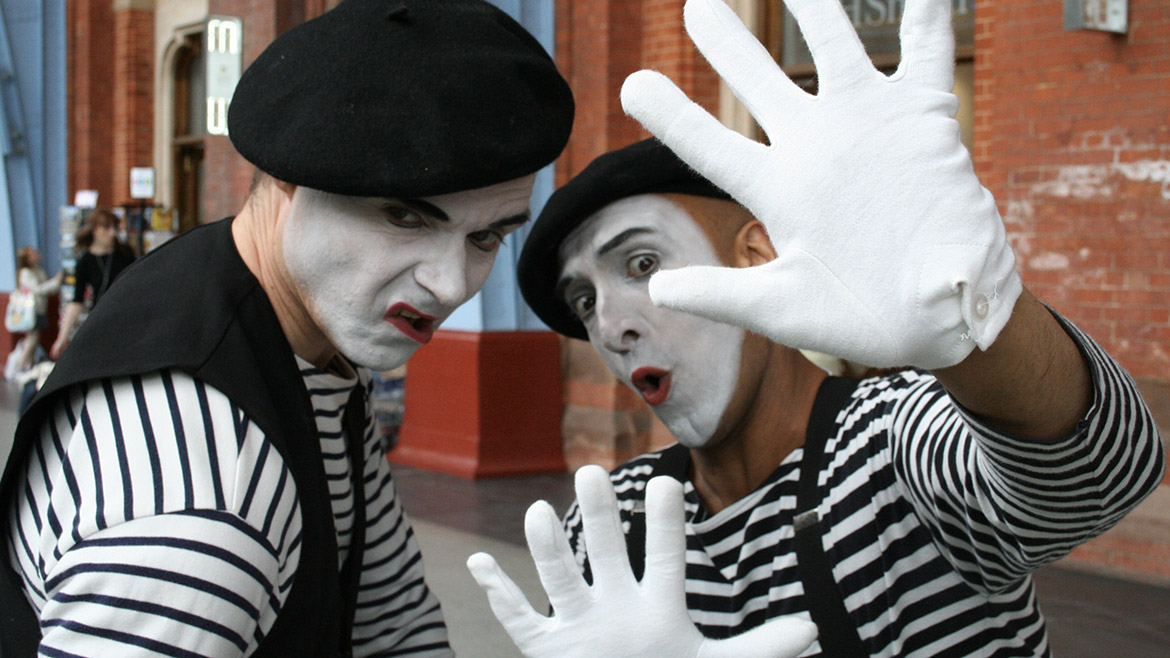
5 times the French were deeply unromantic
The French have a reputation for being great romantics, and tourists flock to France to experience this romance first hand. But alongside the hearts and flowers runs something darker, a certain cynicism about romance that’s absent in Anglo-Saxon countries. Their attitiude to love and sex, they would probably argue, shows they understand the reality of relationships, which blinkered Anglos, with their Disney ideal of marriage do not. Let’s look at some times when the French really weren’t into romance.
1. When Serge created a sexy but unromantic song
That this song is all about sex is evident from Jane Birkin’s ecstatic groans, which transcend language and had it banned across Europe when it was released in 1969. It has the status as a naughty classic, slightly cheesy now, but still possible to make you squirm if you’re listening to it in mixed company. The fact that it’s in French only adds to the romance – to us anyhow.
But what’s not obvious to non-French speakers – even though it’s revealed clearly in the chorus and title – is the deeply cynical undercurrent that cuts through it. “Je t’aime, moi non plus” means “I love you, me neither”. It’s a confusing line, one that reverses expectations and reveals the lies that are told to get someone into bed, or that are said in a state of delirium close to orgasm. Like the famous Peter Cook line (“I’m writing a book” “Neither am I”) it pricks the pretensions of who we are and who we pretend to be.
“Moi non plus” – Serge thinks the delusion works both ways, that men and women are playing the same game. But how many women say “I love you” to get a man into bed? Then watch the first 10 seconds of the video and tell me if you’re ever seen anyone look more genuinely in love than poor Jane Birkin. The title is meant to make us smile wryly but I think a lot of women wouldn’t be laughing.
2. When discount flowers for mistresses were advertised.

“The florists of Paris have a special Valentine’s offer for you: 50% off your second bouquet of flowers. Think of your mistress too!”
The photo of this advert apparently on the official Mairie de Paris advertising boards made the rounds on social media three Valentines ago. Many people chuckled because it encapsulated an idea we have of the French (and that they have of themselves): the cliché of French men having mistresses.
The only thing that really surprised anyone was how blatant the advert was. Was it really a sensible marketing idea to tarnish Paris’ reputation as a city for lovers? Adultery may be accepted as a fact of life here but it should never be brazen. Cheating on your spouse is acceptable but being indiscrete is not.
Later it was claimed to be a fake, something the Mairie apparently confirmed on Twitter (I can’t find any trace of this) so we can breathe a sigh of relief that the town hall wouldn’t be so unromantic – or make such a bad business decision.
3. When they created a part of the day especially for adultery.

The expression cinq à sept originally referred to the time of day – 5 to 7pm – when you would meet with friends after work to drink and socialise. But over the years cinq à sept took on a certain ‘nudge-nudge’ quality as the time was employed instead to conduct extra marital affairs. The man (because let’s face it, it’s men we’re talking about the vast majority of the time) could finish work, have sex with his mistress and be home in time for dinner prepared by his wife.
Of course Anglo-Saxons have affairs, they’re just not as well organised. But isn’t there something a little creepy about having a time of day consecrated to adultery? You might argue that it’s better this way as it does not disturb the family routine (the family is still the most important thing) which a more haphazard approach might.
Perhaps the greatest defence that can be made against this time-slotted approach to sex is that it’s rather outdated. (Who fininshes work at 5pm nowadays anyway?) Besides, there are other, more efficient ways of cheating. Which brings me neatly too…
4. The time a site for cheating spouses was given the right to advertise.
Just last week a court ruled that the publishers of Gleeden, a hook-up site for married people, should be allowed to continue to advertise its services. Gleeden billboards with simply hilarious slogans like “Unlike antidepressants, affairs don’t cost the social security anything” have long been plastered all over France, outraging the AFC (a Catholic family association) who brought the suit.
They argued that these advertisements encouraged infidelity which results in the breakdown of marriages, and that this incitement was against the French civil code. The judge disagreed, ruling that infidelity does not necessarily ruin marriages, especially if both parties agree to it or if the injured party forgives their cheating spouse.
He’s right. But it’s a bit like saying that pissing on chips doesn’t mean you have to throw them away because some people like pissy chips or are just so hungry they’ll eat anything. Still, either way you look at it it’s not very romantic.
5. When their President’s affair received press attention.
In January 2014 pictures of president François Hollande looking ill at ease on a moped were plastered across the front page of a French tabloid magazine. The photos were funny because he looked stupid in a helmet, but that wasn’t why they were published: it was because he was visiting his secret lover, the actress Julie Gayet. Hollande at that time was living with another woman, Valérie Trierweiler.
The French establishment were outraged – not because Hollande cheating on his partner – but because the magazine had the temerity to publish the evidence. And 77% of the French public agreed that this should be a private, not public matter. There is a long tradition of presidential mistresses being rather public secrets; everyone in the know is aware of them – press very much included – but they aren’t spoken about.
While the British press sniggered at another French president being added to the long list of those with mistresses, the French press retaliated that they weren’t puritanical or hypocritical calling for the resignation of political men (because it is always men) for something unrelated to their jobs.
And this in a nutshell seems to be the difference between Anglo-Saxon and Gallic attitudes to sex and marriage, played out on the bigger stage of politics. British and American people want their public figures to fit the ideal of love: to be married and faithful, and God forbid that they should slip. The French like this romantic notion but see its weakness and prefer to look the other way when indiscretions occur. To a someone from an Anglo-Saxon country this may seem cynical, unromantic. To which a French person may reply, “C’est la vie“. Certainly, but it’s a macho view of the world that benefits men more than women.
One last thing. That Gleeden site? It has an estimated 500,000 members in France. In one of their adverts they boasted of having 36,000 female members. Do French women like affairs as much as French men? Moi non plus.
Enregistrer




